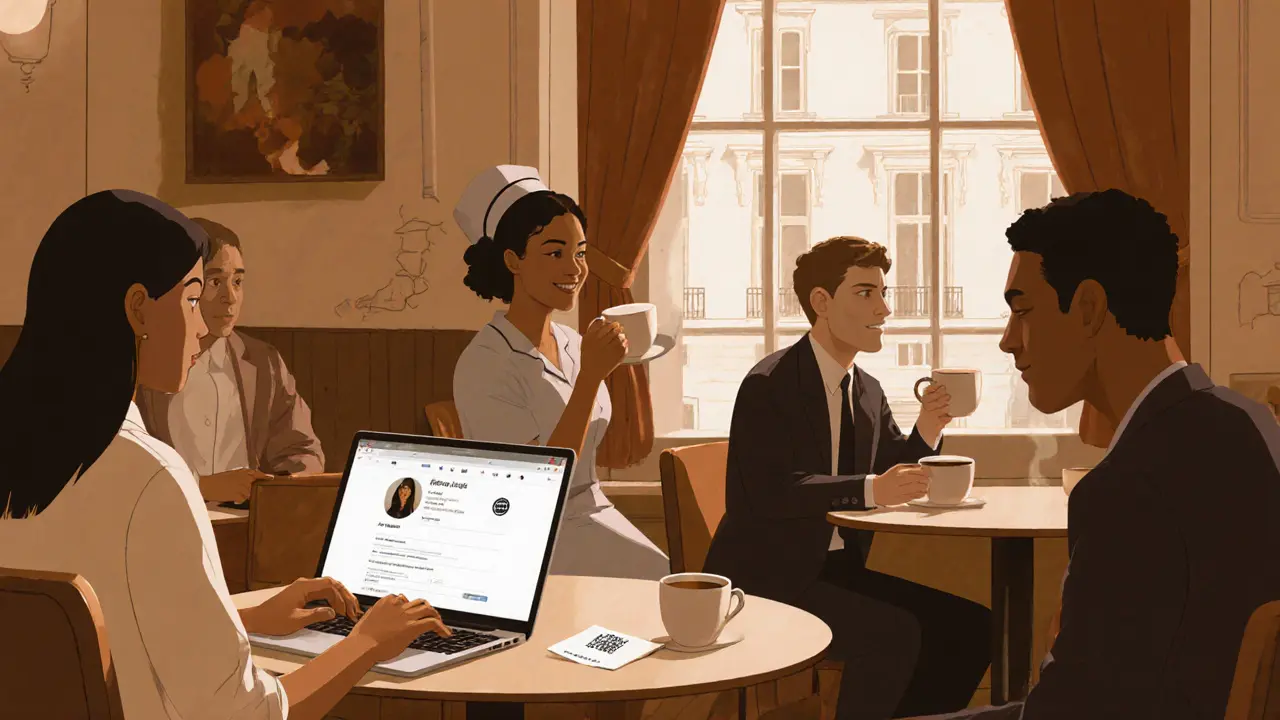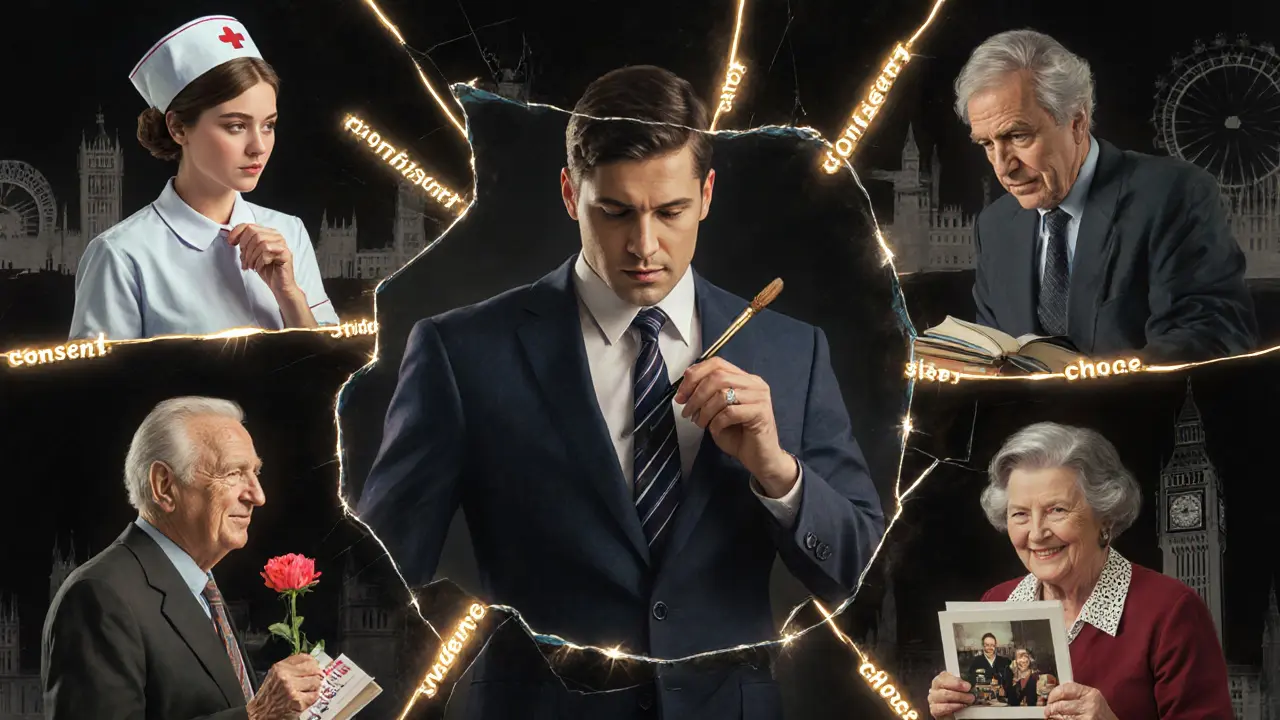People talk about escorts in London like they’re part of some secret underground world-glamorous, dangerous, or illegal. But the reality? It’s far more ordinary, and far less dramatic, than what you see in movies or clickbait headlines. If you’ve ever wondered whether escort services in London are just a front for prostitution, if all escorts are exploited, or if hiring one is a legal gray area-you’re not alone. Let’s cut through the noise and look at what’s actually happening on the ground.
Myth 1: All Escort Services Are Illegal
It’s one of the most repeated lies. You hear it from strangers, read it in tabloids, even get warned about it by well-meaning friends. But here’s the fact: in the UK, selling sexual services is not illegal. Neither is buying them. What’s illegal is soliciting in a public place, running a brothel, or pimping. That’s it.
Many escorts in London operate as independent contractors. They book appointments through private websites, use encrypted messaging apps, and meet clients in hotels or their own apartments. They don’t work on street corners. They don’t take cash from strangers in alleys. They run businesses-sometimes full-time, sometimes part-time while studying or holding another job. A 2023 study by the London School of Economics found that over 70% of sex workers in the city classified themselves as self-employed, with 42% saying they chose the work for flexibility, not because they had no other options.
Myth 2: Escorts Are All Victims of Trafficking
This myth does more harm than good. It takes away agency from people who are making real choices. Yes, human trafficking exists. And yes, some people are forced into the industry. But lumping every escort into that category is misleading and dehumanizing.
Think about it: you wouldn’t assume every freelance graphic designer is being exploited just because they work remotely. Same logic applies here. Many escorts in London are students, artists, nurses, or single parents who use the income to pay rent, fund education, or support their families. A 2024 survey by the English Collective of Prostitutes found that 68% of respondents entered the industry voluntarily, and 81% said they felt safe and in control of their working conditions.
That doesn’t mean the job is easy. It’s emotionally taxing. It requires strong boundaries. But calling every escort a victim ignores the reality that many are simply trying to survive on their own terms.
Myth 3: Escorts Are Only for Rich Men
Pop culture paints escort clients as billionaires in tailored suits, handing out wads of cash. But the truth? The average client isn’t a CEO. He’s a 34-year-old accountant who works long hours and feels lonely. She’s a 51-year-old widow who hasn’t had physical affection in years. They’re not looking for a fantasy-they’re looking for connection, comfort, or just someone to talk to without judgment.
Prices in London vary wildly. Some high-end agencies charge £500+ per hour. But the majority of independent escorts set rates between £80 and £200. Many offer shorter sessions-30 or 60 minutes-for people who can’t afford more. Some even do online-only chats for £20 an hour. The industry isn’t just for the ultra-rich. It’s for anyone who wants companionship and is willing to pay for it legally and respectfully.
Myth 4: Escorts Are Dangerous and Untrustworthy
There are risks in any job. But the idea that escorts are inherently dangerous? That’s mostly fueled by sensational headlines and fear-based marketing.
Most escorts in London use safety protocols: they screen clients through video calls, share their location with a friend, use verified payment platforms like PayPal or bank transfers, and avoid cash. Many use platforms like EscortList or VipAssist, which have built-in review systems. A 2025 report from the UK National Crime Agency showed that incidents involving escorts reporting violence or scams dropped by 37% between 2021 and 2024-largely due to better screening tools and peer support networks.
Scams do happen. But they’re usually from fake agencies or people pretending to be escorts-not from legitimate workers. If someone asks for upfront cash, refuses video chat, or pressures you into meeting in a secluded place? That’s a red flag. But that’s not the norm. Most escorts treat their clients with professionalism, not suspicion.

Myth 5: The Industry Is Disappearing Because of Apps Like Tinder
You’d think dating apps killed the escort business. But the opposite is true. Apps like Tinder and Bumble have actually increased demand for paid companionship.
Why? Because they’ve normalized the idea that people don’t always want emotional commitment-they just want connection. Many clients who used to swipe endlessly without results now turn to escorts because they want a guaranteed, respectful, no-strings experience. One escort in Camden told me, “I get more clients who say, ‘I’m tired of ghosting’ than I do who say, ‘I can’t find anyone.’”
Technology didn’t replace the industry. It clarified it. People are more honest now about what they’re looking for. And escorts? They’re just filling a gap that dating apps can’t.
Myth 6: All Escorts Are Women
When you picture an escort in London, you probably imagine a woman. But male and non-binary escorts are growing fast. A 2024 report from the UK Sex Workers’ Rights Advocacy Group found that 22% of registered escorts in London identified as male or non-binary-up from 8% in 2019.
Male escorts often serve women, LGBTQ+ clients, or older men seeking companionship. Non-binary escorts report higher demand from clients who want to avoid traditional gender roles. The stigma around male escorting is slowly fading, especially in urban areas. More men are speaking openly about it on forums like Reddit’s r/MaleEscortUK, sharing tips on safety, pricing, and client management.
What Actually Happens During a Session?
It’s not all sex. Not even close.
Many clients book escorts for conversation, dinner, walks in Hyde Park, or even just someone to watch a movie with. One escort in Notting Hill told me she spent an entire evening helping a client write a eulogy for his late wife. Another helped a nervous client practice giving a work presentation. A third took a 70-year-old man to his first art gallery.
Physical intimacy is part of the service for some-but only if it’s agreed upon in advance. Most escorts have clear boundaries. They don’t do anything without consent. And they don’t stay longer than agreed. No surprise visits. No hidden fees. No pressure.

How to Tell If an Escort Is Legit
If you’re considering hiring one, here’s how to avoid scams:
- Check reviews on multiple platforms-not just one site.
- Insist on a video call before meeting. Legit escorts will do this.
- Never pay in cash upfront. Use traceable methods like PayPal or bank transfer.
- Look for profiles with real photos (not stock images) and detailed bios.
- Trust your gut. If something feels off, walk away.
Legitimate escorts don’t need to hide. They’re proud of what they do. They have websites. They answer questions. They care about their reputation.
Why This Matters
Myths about escorts don’t just mislead-they hurt. They lead to laws that criminalize safety measures. They make it harder for workers to report abuse. They isolate people who could otherwise live stable, healthy lives.
London’s escort industry isn’t glamorous. It’s not criminal. It’s just work. And like any job, it has good days, bad days, risks, and rewards. The people doing it aren’t stereotypes. They’re neighbors. They’re coworkers. They’re people trying to get by.
Maybe the real question isn’t ‘What are escorts doing?’
It’s ‘Why do we keep pretending they don’t exist?’
Is hiring an escort legal in London?
Yes, hiring an escort is legal in London as long as no third party is profiting from the arrangement (like a brothel owner or pimp). Selling sexual services is not illegal, and meeting privately with a consenting adult is protected under UK law. What’s illegal is soliciting in public, running a brothel, or exploiting someone else.
Are all escorts sex workers?
Not all. Many escorts offer companionship without sex-things like conversation, dinner dates, or attending events together. Some clients hire them just to feel less lonely. While sex may be part of the service for some, it’s never assumed. Clear boundaries are standard practice.
How do I know if an escort is safe?
Legitimate escorts use safety tools: video calls before meeting, shared location with a friend, verified payment methods, and client reviews. Avoid anyone who refuses a video chat, asks for cash upfront, or pressures you to meet in isolated places. Check multiple review sites and look for consistent feedback over time.
Do escorts in London pay taxes?
Many do. As self-employed individuals, they’re required to register with HMRC and declare income. Some use accounting services specifically for sex workers. Others pay taxes informally. While not all report income, the same is true for many gig economy workers. The key point: being an escort doesn’t automatically mean avoiding taxes.
Can men be escorts in London?
Yes. Male and non-binary escorts are a growing part of the industry. They serve women, LGBTQ+ clients, and older men seeking companionship. Platforms like VipAssist and EscortList now have dedicated categories for male escorts, and demand has increased by over 150% since 2020.
What’s the average price for an escort in London?
Prices range from £80 to £200 per hour for most independent escorts. High-end agencies charge £400-£800, but those are rare. Many offer shorter 30-minute sessions for £50-£100. Online-only chats can be as low as £20/hour. The market is diverse, not just for the wealthy.
What Comes Next?
If you’re curious about the industry, start by listening-not judging. Read personal stories from escorts on blogs like The Guardian’s ‘My Life as an Escort’ series. Follow advocacy groups like the English Collective of Prostitutes. Talk to people who’ve been there.
There’s no need to hire one. But there’s every reason to understand them.







Write a comment